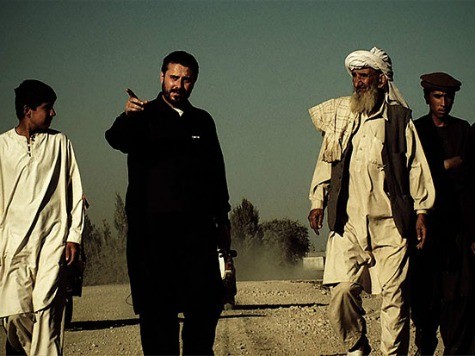
The director of the new documentary Dirty Wars, a film detailing America’s secretive military tactics against Al Qaeda, says the country’s moral standing in the fight against terrorism is history.
“We’ve lost every shred of credibility around the world, from Iraq to Yemen and Pakistan … we’ve unleashed through these drone strikes a backlash,” says Rick Rowley, a veteran war correspondent who worked with The Nation’s Jeremy Scahill on the film. “We’ve lost any moral credibility on these issues.”
Dirty Wars documents the worldwide actions of Joint Special Operations Command (JSOC), the little known branch of the U.S. military which famously took out Osama bin Laden and continues to work around the world to snuff out terrorists. The film looks at how the group’s secretive actions, and the ongoing drone strikes targeting terrorists, often injure or kill innocent civilians. Rowley and Scahill insist those attacks are creating more terrorists and turning possible allies against us.
Rowley doesn’t pull a single punch when it comes to how the press has treated President Barack Obama’s hand in the country’s ongoing war tactics.
“There was the hope and perception amongst a lot of liberals that the part of the global war on terror we found unsavory … torture, rendition, civilian casualties … were an aberration that happened under Bush and Cheney,” says Rowley, who includes a scene which appears to show Obama’s approval for the continued imprisonment of a Yemeni journalist investigating a JSOC strike. “Your principles are tested, not when they’re violated by a cartoonish villain like Dick Cheney, but when they’re violated by someone you voted for.”
So far, the press and some liberals have failed the principle test, according to Rowley. Had some of the current actions being undertaken by the White House occurred under a President McCain or Romney administration “there would be a massive outcry in Congress and parts of the press,” he says.
Shooting Dirty Wars proved consistently dangerous, as is the case whenever you leave the protective umbrella of the U.S. military.
“Every time you go out and try to cover things on your own, you make your own calculations to feel out what’s safe and what’s possible,” says Rowley, who grew a beard along with Scahill to help avoid being spotted instantly as an outsider. “In every country we came up with a different calculation.”
“When the Taliban takes over the roads,” he adds, “it’s impossible to travel.”
The film routinely shows difficult images of civilian corpses, shots that would make even battle-hardened warriors wince.
“You walk a line, a fine line always, when you cover war,” he says. “You need to show the intensity and violence in a way that’s visceral. If you go too far, you show people as meat.”
When asked if he would be interested in a follow-up documentary describing more effective tactics to defeat global terrorism based on his vast experience covering terror issues Rowley declines, saying he’s no pundit and has no ideological ax to grind. He simply wants Americans to know precisely what the government is doing in their name.
“The global war on terror is the most important story of our generation,” he says. “It’s being conducted without our knowledge or our consent.”

COMMENTS
Please let us know if you're having issues with commenting.